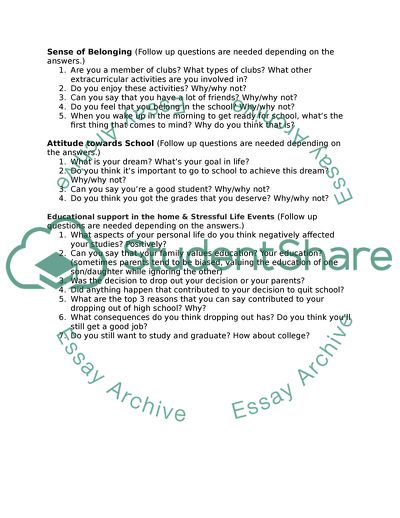Cite this document
(Questionnaire for Teachers and School Administrators Report Example | Topics and Well Written Essays - 2000 words, n.d.)
Questionnaire for Teachers and School Administrators Report Example | Topics and Well Written Essays - 2000 words. https://studentshare.org/education/1735275-order-for-survey-questions
Questionnaire for Teachers and School Administrators Report Example | Topics and Well Written Essays - 2000 words. https://studentshare.org/education/1735275-order-for-survey-questions
(Questionnaire for Teachers and School Administrators Report Example | Topics and Well Written Essays - 2000 Words)
Questionnaire for Teachers and School Administrators Report Example | Topics and Well Written Essays - 2000 Words. https://studentshare.org/education/1735275-order-for-survey-questions.
Questionnaire for Teachers and School Administrators Report Example | Topics and Well Written Essays - 2000 Words. https://studentshare.org/education/1735275-order-for-survey-questions.
“Questionnaire for Teachers and School Administrators Report Example | Topics and Well Written Essays - 2000 Words”. https://studentshare.org/education/1735275-order-for-survey-questions.


